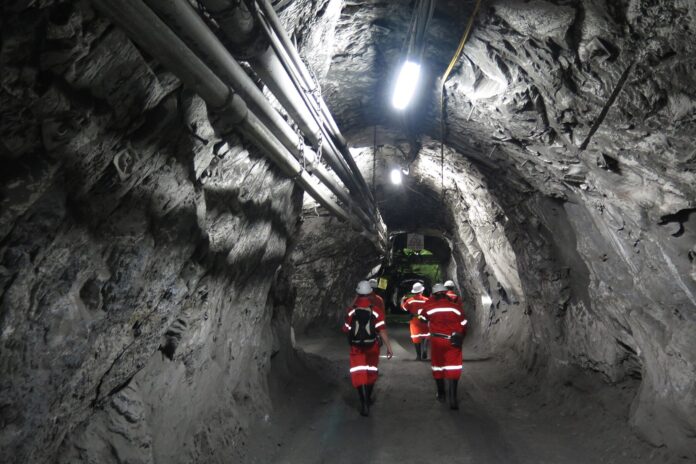Abuja, Nov. 14, 2023: Stakeholders in the Engineering Procurement and Construction (EPC) sector have called on governments in Africa to patronise indigenous firms with the capacity to deliver and grow their economies.
According to them, this will help to curb the loss of more than 50 billion dollars per year through capital flight in the African continent.
The panellists made the call during a session at the ongoing Inter-African Trade Fair, (IATF) 2023 Trade Conference in Cairo, Egypt, on Monday.
The panel session was tagged “The Challenges, Opportunities and Solutions for African EPCs – Perspectives of the EPCs.’’
According to them, contracting EPC-related jobs to local firms will reduce capital flight and retain funds while helping to develop human capacity.
They also called on multilateral fund agencies, especially African-based ones such as the African Export-Import Bank (Afreximbank) to provide funding for indigenous firms for the execution of EPC-related jobs.
This, they said, would reduce the situation where Chinese and other nationals who sponsor the execution of such contracts repatriate funds and resources meant for the development of the African continent.
Speaking on the challenges faced by EPC’s companies in Africa, Hassan Allam, Chief Executive Officer, Hassan Allam Holding, identified infrastructure deficit and lack of funding as a crisis rocking the sector.
“The first challenge is the infrastructure deficit. Most of the African countries are faced with infrastructure challenges which include logistics and that of supply chain which is impacted on project executions.
“The second, which is limited access to finance and skill gaps in the African space and its contractors,” Allam said.
Speaking on what should be done to address the challenges, Chairman/GCEO, Oilserv Group, Engr Emeka Okwuosa, called on Afreximbank to intensify efforts in ensuring more access to fund more African EPC companies.
Okwuosa said it would enhance growth and competition in the African economy against other world powerful economies.
“When we talk about finance and funding, for us, in the oil and gas sector, we have a success story of the ongoing construction of the AKK pipeline at 2.4 billion dollars.
“The issue of funding is not about access, but the cost of the funds.
“Most African countries are not in a position to access funding in a way to be able to compete in terms of cost when compared to the Chinese companies.
“This is because, if you are bidding for an EPC contract and the cost, apart from your ability to execute in terms of your technical capacity, the cost enables you to win and executive the project profitably.”
He said that competing with European, and Chinese companies was quite difficult.
“This is because ultimately, the margin of an African company does not come close to competing with the financial muscles of the Chinese, which often than not, does not build indigenous capacity.
“But rather, giving way to capital flight which are repatriated to develop their countries rather than injecting such in Africa.
“I believe, the Afreximbank should step up and create more access to funding for African EPC companies, and at a good rate because that is the only avenue capacity can be built.
“Also, we are looking at Afreximbank to solve problems and there are ways to go about it.”
Okwuosa said Afreximbank could leverage its position of strength and work with other financial institutions across African countries like the Nigerian Export-Import Bank of those countries.
He said another challenge was the ease of moving labour across Africa as well as building up local content.
Okwuosa said that when these challenges were addressed adequately, capacity would be built.
“The ease of moving labour in Africa is very poor.
“For instance, Nigeria has to a greater extent, grown capacity but the ease of navigating this capacity across Africa is not too welcoming and seems impossible.
“This should not be so as we can grow the capacity of Africa for African development,” Okwuosa said.
Ahmed Elsewedy, Chief Executive Officer, Elsewedy Electric, frowned at the current inconsistency in the political system in Africa, as many projects were either delayed or frustrated by the system.
According to him, the political uncertainty in Africa has made it challenging for EPC projects.
“For instance, in a switch from one government to another after an election, oftentimes, projects are dragged backward thereby undergoing renegotiation.
“This process can sometimes take more than two years to be approved. That alone is a major setback to the EPC projects across Africa and this does not look good.
“But because we are ready to work, most times we continue with the project despite being unattractive and profitable.’’
Speaking on capital flight, he said that capacity would not be achieved when projects were contracted to the Chinese or European companies.
“Africa has the capacity, and the idea of taking the money back to China or Europe to develop is a system and challenge that will never grow capacity,” he said.
Dr Leemon Ikpea, Chairman, Lee Engineering and Construction Company Limited, who spoke on the sidelines, said that funding had been a serious issue in the execution of projects undertaken in the industry in recent times.
“Like other big enterprises working in a Nigerian economy that is dollarised, the price of materials rises unpredictably within days or weeks.
“It is difficult to go back to a client to discuss new terms regarding change in Forex. ”
Ikpea, however, expressed optimism about the Nigerian government’s efforts to woo investors into the country, saying the challenge may soon become a thing of the past.
“We are optimistic that the Federal Government’s economy team would open more opportunities for the industry and its economy respectively,’’ Ikpea said.




